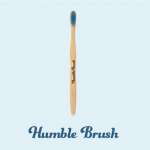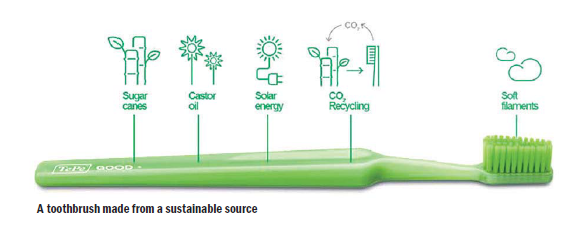What’s new? …..I wish I could start this article with the announcement that dental disease was about to become a thing of the past, instead of consistently being the most common preventable disease in man, affecting at least 3.58 billion people worldwide.
By Elaine Tilling MSc DMS RDH FAETC MIHPE, BSDHT Publications Committee, Education and Project Manager TePe Oral Hygiene Products Ltd
 Closer to home, growing numbers of children with tooth decay are being admitted to hospital with more than 26,000 children aged five to nine taken to hospital in the past year for extractions under general anaesthetic to remove their decayed teeth.
Closer to home, growing numbers of children with tooth decay are being admitted to hospital with more than 26,000 children aged five to nine taken to hospital in the past year for extractions under general anaesthetic to remove their decayed teeth.
This number has risen for the second year in a row and is largely down to the frequency and amount of sugars consumed, which are also fuelling rising levels of childhood obesity.
For UK adults, tooth decay is not the only major cause of tooth loss. Gum disease (periodontitis) is thought to account for almost 50% of tooth loss in adults. Gum disease is a slow progressive condition caused by inflammation in the gums as a response to build-up of dental plaque, and is now thought to have effects elsewhere in the body. So, less of a development but more of an evolution in understanding how infection in the mouth can negatively affect our general health. The dental teams work hard to get this important message over to their patients on a daily basis and will advise you of your specific risk for general disease related to your own oral health.
NEW REASONS TO ATTEND THE DENTIST?
With greater emphasis on the importance of body image that we are witnessing, the dental teams have an opportunity to raise awareness of the importance of healthy gums and teach effective oral hygiene. Whilst patients often now present in dental practice wanting a quick fix perfect smile with whitening and perfect dental implants high on the wish list, the increased interest with ‘self’, fuelled by social media does provide an opportunity to advise about the basics of oral care. Not the ‘sexiest’ of subjects but as essential to a healthy mouth and body as a balanced diet. And perhaps more importantly, crucial to the longevity of a dental implant. One of the reasons for implant failure is ineffective plaque control. Implants need as much, if not more care and attention as natural teeth. They are certainly not a low maintenance option.
Facial aesthetics is another ‘new’ reason patients visit the dental practice – Dentists and appropriately trained dental hygienists and therapists, offer high quality Botox and facial filling procedures which can improve the patient’s motivation to also step up their oral hygiene routines to maximise the effects of their facial treatments by ensuring that their teeth don’t let them down.

Oral hygiene is not rocket science. Brushing our teeth is hopefully something that we all do at least once a day, with most of us aware that twice a day is optimum for a healthy mouth. To assist us in this daily battle against oral bacteria, we have a plethora of dental products available to aid our oral hygiene routine making it ‘effective’, ‘simple’ and even ‘pleasurable’. Choosing a toothbrush has never been more time consuming – electric, battery or simply manual they all do the same job when used for 2 minutes twice a day using the right technique. The UK’s oral care market was estimated to be worth over £15 million pounds in 2018. So, we are buying the products. The question is, are we using them effectively and often enough?
Regular check-ups with your dentist and dental hygienist/therapists (DH/T) will be able to

answer that question for you! You can now make appointments with your DH/T directly without seeing your dentist first. Just ask at your practice to see if they are offering oral hygiene appointments by Direct Access. If you need any treatment not offered by a DH/T, they will refer you on to the dentist. Prevention is always much better AND cheaper than cure! Now that is something that has NOT changed!
ORAL HEALTH AND THE ENVIRONMENT?
Quite rightly, concerns about our environment are affecting every aspect of our lives and that includes dentistry. Like medicine, the practice of dentistry involves the use of single use items which are often made of plastic. From the mouthwash cup to the saliva ejector tubes, all are used uniquely on you to protect you from cross infection. Plastic provides us with a material that is inexpensive to make, stable and easy to manipulate and so provides us with safe and hygienic products for use in many aspects of our daily lives. What we didn’t perhaps consider was that once produced, it would be with us for many lifetimes and that the biodegradation would have the impact it is having on our planet.

Patients are now questioning our recommendation for using dental floss, interdental brushes and toothbrushes all which are predominantly made from plastic. Are there any non-plastic options? Well, yes, you can purchase silk floss; quite expensive and often only available in a plastic container or wooden interdental sticks which will remove the plaque from above the gum level in between the teeth but not just under the gum where it is needed for many of us. We are now seeing products that have exchanged the plastic element of their design to bamboo for interdental brushes and toothbrushes. A positive step for sure. However, as a combination product made up from more than one material (bamboo handle, bioplastic/nylon filament and wire core or fixer) these cannot currently be recycled in the UK as we don’t have the separation facilities.

Dental practices, like many businesses are working towards being more environmentally sustainable, from ethical purchasingiv to single use instrument recycling partnershipsv. Dental companies are working towards finding more sustainable materials with which to make their products such as using plant based plastics –still a plastic but neverthless with the same high quality and hygiene properties for use in the mouth but from an ethical and sustainable source.
So, alongside the advice and tuition on what environmentally friendly oral hygiene products to use and how to use them, your Dental Care Professionals are also becoming pretty good at advising how to dispose of them in a more environmentally friendly way.
TOOTHBRUSHES:
Cut off their heads with some garden secateurs or strong scissors. Dispose of the head in the general waste as it contains plastic, nylon and metal. Recycle the handle in the normal plastics bin.
INTERDENTAL BRUSHES:
Ask at your dental practice if they offer a recycling option for used interdental brushes – these can be incinerated to produce energy for the grid and bottom ash for road and car park surfacing.
TOOTHPASTE TUBES: 
Look for the Terracycle ™ boxes sponsored by Colgate – this company washes and shreds the tubes and toothbrushes and recycles the resulting pellets into garden furniture amongst other things.
None of these options are perfect…but they are all steps in the right direction. Caring for our environment has become as crucial to life on earth as caring for our mouths is for the life of our teeth and the health of our bodies. Make a dental appointment today and letthe dental team guide you to do your bit for both.









